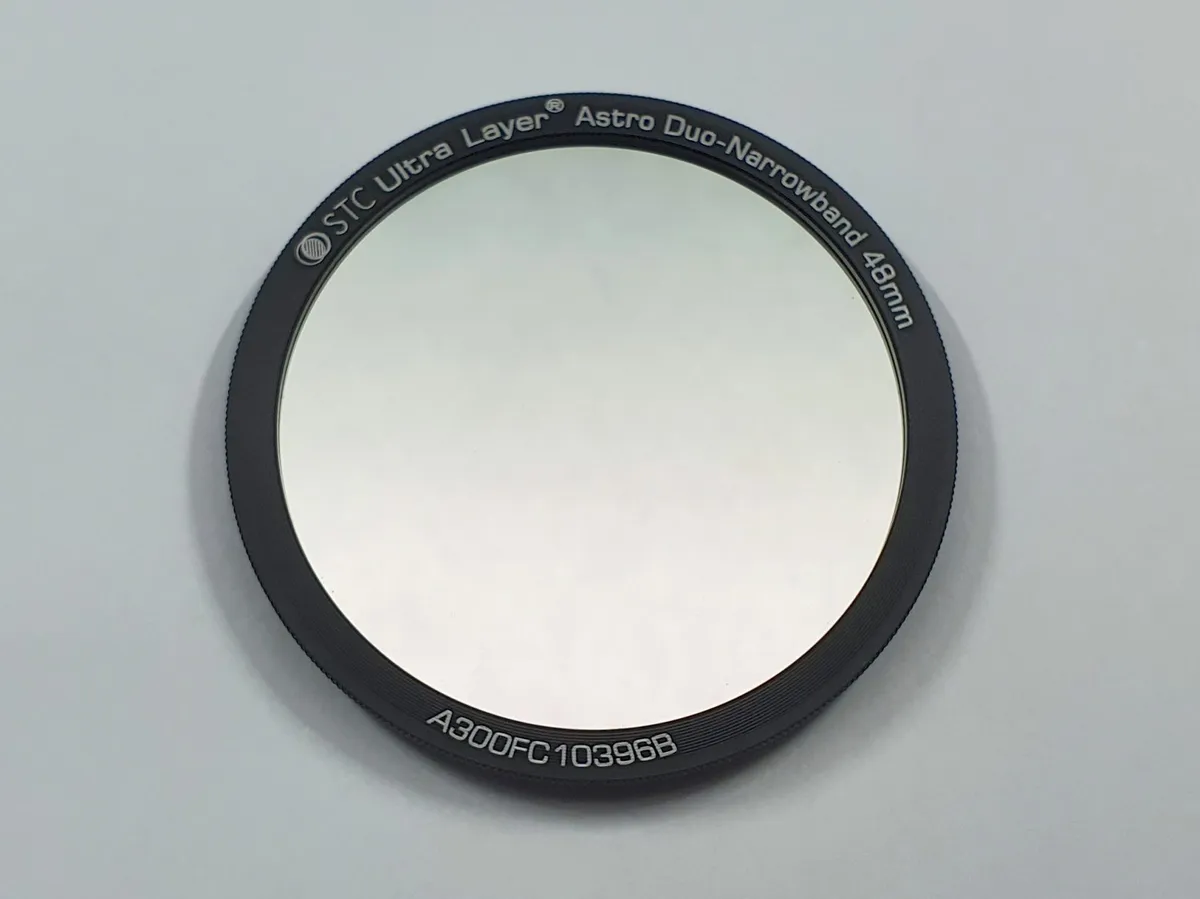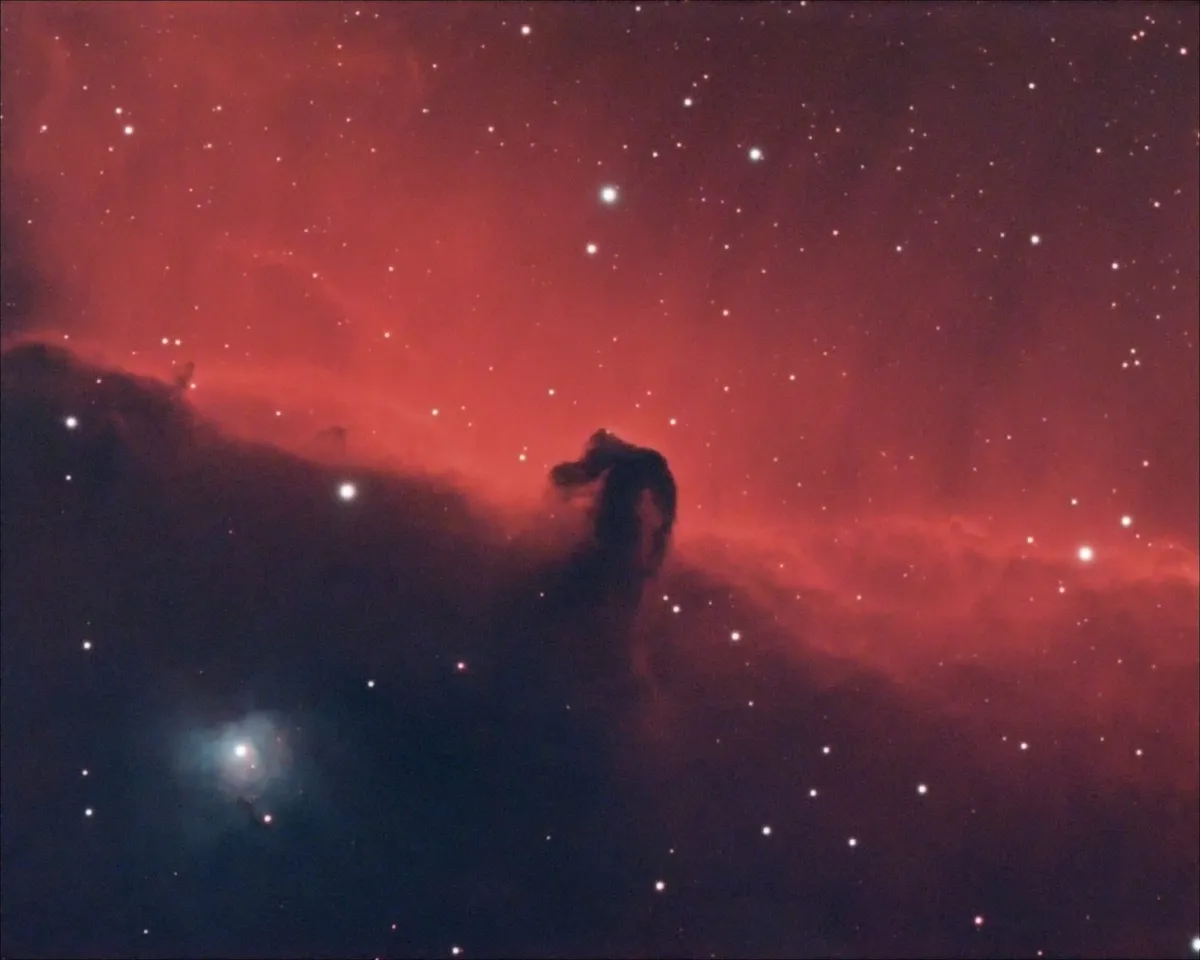STC Astro have produced a duo narrowband filter that's of special interest to owners of One Shot Colour (OSC) cameras and DSLRs.
Traditionally, OSC cameras have been on the back foot when it comes to photographing emission nebula. Longer exposures really help in allowing the desired signal to build up for a nice image, but light pollution or ambient sky glow can often spoil the picture or drown out the desired object.
The duo narrowband filter rejects unwanted light, while allowing transmission of hydrogen alpha and ozone wavelengths. This allows signal from these emission lines to build up, and produce a high contrast image.
The duo filter is available for an impressive array of DSLR cameras, but we chose a 2-inch version to use along with our colour CCD camera.

Our targets included small nebula like The Crab (M1), larger ones like The Tadpoles (IC410) and Heart Nebula (IC1805), the Great Orion Nebula (M42) and The Horsehead (B33) as a hydrogen alpha specific test, with very pleasing results.
We chose the bright star Alnitak in Orion to test for any unwanted reflection artefacts, finding none.
Of particular interest was the results in the Red channel, which are produced from the Hydrogen wavelengths, as only one quarter of each pixel in OSC cameras can respond to this red light, while the ozone wavelengths are greenish-blue and are accepted by 75% of each pixel.

Splitting the Red, Green and Blue channels from our stacked images revealed that the filter works exactly as designed, the Crab nebula especially displaying good separation of details, contrast, and definition, allowing the camera to make the most of the available H-alpha signal.
From our light polluted imaging location, the duo filter produced impressive, high contrast images of nebulae, and in our opinion, offers a worthwhile option to increase the versatility of OSC and DSLR cameras.
Vital stats
- Price £329
- Size 1.25”,2”, or Clip-In options for DSLR cameras available
- Bandpass Hydrogen alpha (Ha) & Ozone (Oiii)
- Supplier Modern Astronomy
- Tel 020 8763 9953
- www.modernastronomy.com



